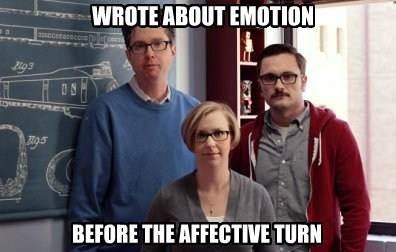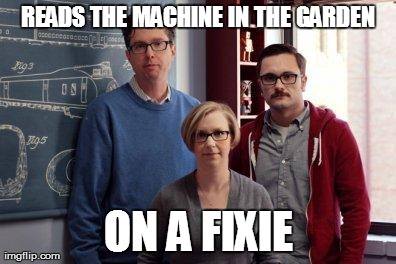Last week, three members of our American Studies community, professor Randy Lewis, and graduate students Sean Cashbaugh and Carrie Andersen, were written up in The Daily Texan for their work on The End of Austin, an online journal that features stories on and about our urban home. Not only did The Daily Texan note TEOA’s attention to the changing culture and demographics of the city, they also published the following humorless picture, which we’ve all been laughing about since (the pictured trio included!):
Because Randy, Sean, and Carrie appear so absurdly serious and melancholy in that picture, we couldn’t help but break out our copies of Photoshop to have a little fun. We started with the traditional picture + text meme, quickly coalescing around a hipster academic theme, before quickly heading off into a few different directions entirely. As a little bit of fun on a Friday, we’ve curated our favorites for you. All of these were made by members of the American Studies community.


